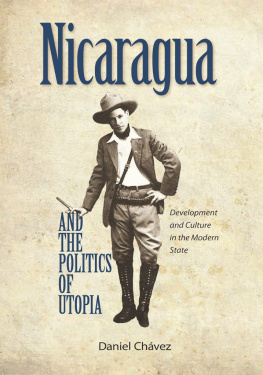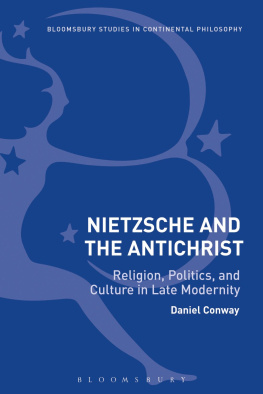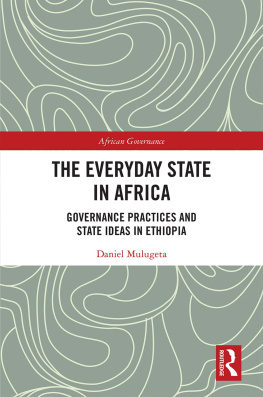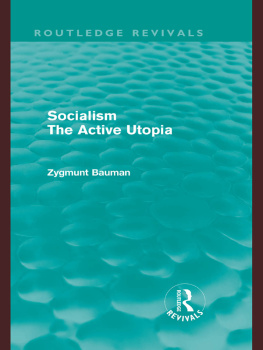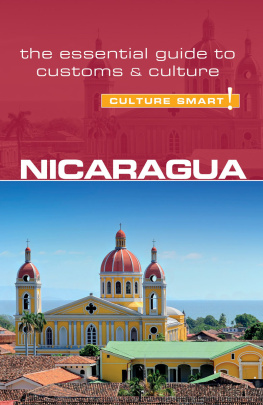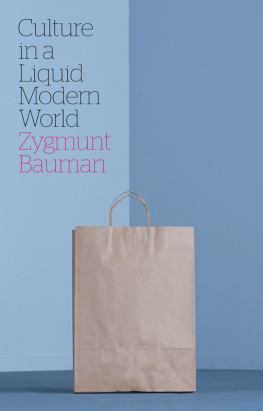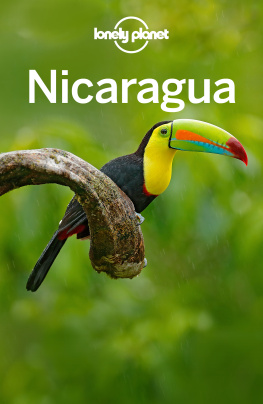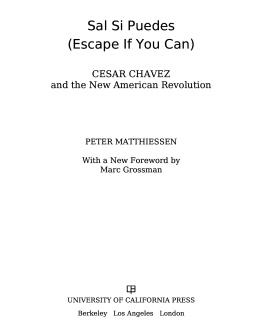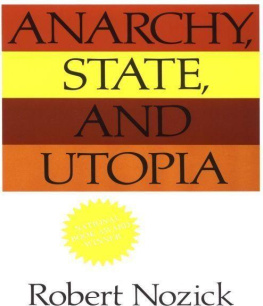Nicaragua and the Politics of Utopia
Nicaragua
AND THE POLITICS OF UTOPIA
Development and Culture in the Modern State
Daniel Chvez
Vanderbilt University Press
Nashville
2015 by Vanderbilt University Press
Nashville, Tennessee 37235
All rights reserved
First printing 2015
This book is printed on acid-free paper.
Manufactured in the United States of America
Library of Congress Cataloging-in-Publication Data on file
LC control number 2014029783
LC classification number F1528.C46 2014
Dewey class number 972.8505'2dc23
ISBN 978-0-8265-2047-0 (hardcover)
ISBN 978-0-8265-2049-4 (ebook)
For Margarita,
flower and rain in the long season of learning.
Contents
Acknowledgments
The intense and long process of completing the research and writing of this work would have been impossible without the cooperation and generosity of a number of people and institutions. First the Rackham School of Graduate Studies at the University of Michigan provided resources for my two visits to Nicaragua in 1996 and 1997. Those visits allowed me to gather the basic materials for research and gave me the opportunity to meet and interview some of the protagonists and authors discussed in my book. In Nicaragua my gratitude to Daisy Zamora, Sergio Ramrez, Guillermo Rothschuh Villanueva, and Jorge Eduardo Arellano for taking the time to talk to an eager but novice researcher and guiding me to understand better the key moments and basic facts of the rich and complex cultural and political life of their country. I also had the opportunity to briefly converse with Omar Cabezas and with the late Toms Borge (19302012), who gave me important clues about their own work. Through the years I also counted with the cooperation and guidance of Dr. Margarita Vannini and the professional team at the archive of the Instituto de Historia de Nicaragua y Centroamrica (IHNCA) at the Universidad Centroamericana. They made the impossible possible and provided materials that do not exist anywhere else in the world. My gratitude to Blanca Buitrago and Melisa and Andy Nelson, for bringing materials from Nicaragua, for hearing my ideas and letting me believe that I had something valuable to say about their country.
My conversations with my professors and colleagues at different American universities have been invaluable. At Ohio University Professor Thomas Walker got me hooked on researching the history of the most fascinating country in Central America. Daniel Torres, Pepo Delgado, David Burton, and the late Tony Serna gave encouragement and guidance. At the University of Michigan Jos Rabasa, Santiago Cols, and Alejandro Herrero-Olaizola read parts of my dissertation and provided invaluable comments. Special thanks are due to the director of my committee, Frances Aparicio, and to Catherine Benamou, who helped me refine the scope of my work inside the vast sea of Latin American visual and cultural studies. At Vassar College my colleagues and friends Mihai Grnfeld, Andy Bush, Liza Paravisini, Eva Woods, Mario Cesareo, and Michael Aronna made my first teaching job and my research an unforgettable experience. For their passion for the profession and the many spells of laughter shared I cannot thank enough my colleagues at Washington University in Saint Louis: Tabea Linhard, Stephanie Kirk, Mara Fernanda Lander, and Guillermo Rosas. At the University of Kentucky I had the chance to advance my research on Nicaragua and widen the scope of my work with the support of great colleagues Enrico Mario Sant, Ed Stanton, Anbal Biglieri, Yanira Paz, and Susan de Carvalho.
The heaviest burden in revising, advising, and pushing me through the final stages of this work was shared with my dear colleagues at the University of Virginia; at the Department of Spanish, Italian and Portuguese, David Gies, Gustavo Pelln, Man Lagos, Donald Shaw, Fernando Oper, Michael Gerli, and Deborah Parker; at the Department of History Tico Braun, Brian Owensby, and Tom Klubock; at the American Studies Program the staunch support for my work came from Grace Hale, Sandhya Shukla, and Anna Brickhouse. Special mention to Miguel Valladares, a truly dynamic librarian, for his many contributions. Special thanks are due to my writing team extraordinaire in Virginia who gave the best suggestions and advice and provided the hope and guidance at the last stages of the project, therefore my heartfelt gratitude to Hector Amaya, Sylvia Chong, and Jennifer Petersen. I also want to thank my graduate and undergraduate students at UVA whose questions and enthusiasm for the Revolutions of Latin America inspired me to continue with this book, here I want to mention Tony Cella and Marco Segura for their unwavering support.
Finally I want to mention Sarah Bishop, my editor whose suggestions and corrections made readable more than one obscure paragraph. Also the anonymous readers at Vanderbilt University Press who gave great suggestions, and a very special debt of gratitude to my editors in Nashville, Eli Bortz and Joell Smith-Borne, whose patience with my syncopated rhythm of production and whose faith in my work has never faltered.
Introduction
A new society is born not with a cataclysm or a revolution but long before. Implementing new ways of making land more productive, finding more just and efficient ways of distributing work and making food affordable, arriving at conditions under which shelter is sufficient, making sure health and education reaches all, but especially the middle and lower classes. Imagining a new society is not only the task of scientists, philosophers, poets, and religious leaders, but also requires the commitment of traditional politicians, the pressing matter driving the efforts of revolutionaries, and the demand of those who have never had a chance to ask if a new society is possible. In this sense, despite decades of pervasive arm strife and rampant poverty, the twentieth century in Latin America and especially in Nicaragua was the century of trying in fast succession, sometimes imposing with violence, new ways of transforming society. Beyond cynicism or militant partisanship, I believe that behind most forms of organization proposed by different social and political groups, there is always an envisioned horizon of justice, effective political participation, and material abundance. Despite the fact that for a long time the idea of utopia has been mostly associated with revolutionary thought, once a reader approaches the ideas, writings, and the imagination of any individual or collective actor that exerts or tries to exert power, it is possible to detect the remnants or complete elements of a utopian discourse.
In this book I propose that to any of the three major eras that profoundly marked Nicaraguan society there was a specific brand of utopian thought. Even if some readers might find the idea of a Somocista utopia curious if not ironic, given the amount of violence deployed at different moments in the forty-three years in power of this autocratic family, in the first part of Nicaragua and the Politics of Utopia I aim to demonstrate how the Somocista governments, despite being organized around a repressive capitalist-liberal form of government, did have a conservative dream of a stable, modern, and prosperous society. In the second part of the book, by approaching the mythologies of development and the dreams of a transformation of the individual into the New Man of socialism, I propose that the literary and political discourse of Sandinista era, 19791990, coincided with and fed the imagination and the everyday practice of a government trying to build a new social horizon. Finally, in the third part of the book I discuss how, after the crumbling of the socialist camp in Europe, and the first defeat of the Sandinista Front in 1990, the return to democracy is marked by an accelerated dismantling of the socialist aspects of the previous model, and the expedient implementation of a fundamentalist discourse of the market imposing the version of a leaner and more efficient neoliberal state. That discourse of a stronger capitalist society and a contracted but better-run state sector resulted also in a technocratic utopia of particularly conservative if not authoritarian strains that resurfaced in the new formula of a partly liberal, partly Sandinista, and partly conservative societal pact, which lasted until 2005, at the end of the third liberal regime in the postrevolutionary era.

